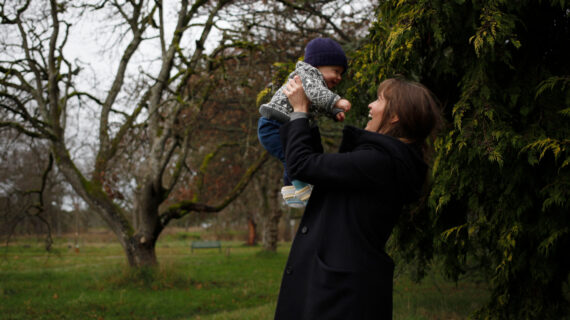The big controversy this week in the Conservative leadership race happened when Ottawa-area MP Pierre Poilievre bought a sandwich at a shawarma shop in London, Ontario.
Tahini’s restaurant isn’t quite the Watergate Hotel, but it kept political commentators busy on Tuesday when Poilievre paid for his lunch using cryptocurrency.
In our weekly round-up of the Conservative leadership race, we’ll take a look at some new polling, explain the recent crypto controversy, and look at what the candidates are saying about the carbon tax.
Charest gets good news from Nanos poll
Jean Charest is the candidate most Canadians believe has the best chance of winning a general election, according to a new poll by Nanos commissioned for the Globe and Mail.
The poll found that 30 percent of Canadians think Charest has the best chance to win an election, while 22 percent think Poilievre is the most electable.1“Nanos conducted a random survey of
1,000 Canadians between March 18th and 20th, 2022. The margin of error for this survey is ±3.1 percentage points, 19 times out of 20.” https://nanos.co/wp-content/uploads/2022/03/2022-2115-Globe-March-Conservative-Leadership-Populated-Report-with-Tabs.pdf
The survey also found that 19 percent of Canadians said none of the candidates has the best chance, while 24 percent are unsure. Patrick Brown got the support of 3 percent of Canadians, while Leslyn Lewis came in with 2 percent support.
The poll doesn’t do much to tell us about how the leadership race is shaping up, because it surveyed all Canadians rather than just the Conservative Party members who will be choosing the new leader. It may be a good data point for party members looking for a leader who will be broadly appealing in a general election.
Last week’s Angus Reid Institute poll, which surveyed past Conservative voters, found that Poilievre was favoured over Charest by 54 percent to 15 percent respectively.
Crypto controversy
Pierre Poilievre caused a minor controversy on Tuesday when he bought a shawarma sandwich with Bitcoin.
Poilievre’s enthusiastic embrace of Bitcoin has been both a way to show he is a fan of innovation and technology, and also a cudgel against the government, which he blames for rising inflation. The owner of the shawarma shop has said that he used Bitcoin as a hedge against rising prices.
The event kicked up a day-long debate about whether candidates should be embracing the polarizing and unregulated cryptocurrencies.
Even The Hub is polarized on the topic. Frequent Hub contributor Matt Spoke lauded Poilievre’s embrace of cryptocurrency, while our executive director Rudyard Griffiths called it “embarrassing” for someone running for prime minister to embrace the technology.
The crypto controversy is part of a broader trend we’ll be keeping an eye on at The Hub. Although most observers are viewing the race through an ideological lens, there is a significant age gap between former Quebec Premier Jean Charest and his frontrunner rivals. Poilievre and Brampton Mayor Patrick Brown are older millennials and Conservative MP Leslyn Lewis is part of Generation X, roughly in the middle of the pack.
“This age gap — what one might describe as a battle between the late boomers and geriatric millennials — is fundamental to understanding the ensuing Conservative leadership race. The generational divide manifests itself in both obvious and subtle ways,” wrote The Hub‘s editor-at-large Sean Speer, at the National Post recently.2“It’s fair to say that Poilievre is among the most effective politicians in Canada at using social media to communicate directly to his audience. His videos on Facebook, Twitter and YouTube regularly run up thousands and thousands of views. Charest, by contrast, didn’t have a Twitter account until his campaign launch earlier this month.” https://nationalpost.com/opinion/sean-speer-charest-against-poilievre-is-a-proxy-for-boomers-against-millennials
“The subtle expressions, however, are more important for understanding the race dynamics. That’s because these generational insights transcend individual candidates and reflect deeper trends within Conservative politics.”
With younger conservatives focusing on issues like housing affordability and generally being more enthusiastic about cryptocurrencies, it’s becoming clear that Poilievre is targeting his fellow millennials.
The first carbon tax conflagration
It’s likely to be the first of many, but the first news cycle about the carbon tax kicked off Thursday night in suburban Ottawa.
Pierre Poilievre held an “Axe the Carbon Tax” rally at a local convention centre and railed against the increased levy on carbon emissions. Right now, there is all-candidate consensus that hiking the carbon tax another $10 per tonne, which goes into effect Friday, is the wrong move.3Conservative leadership candidates jockey for position on the carbon tax. https://www.cbc.ca/news/politics/carbon-tax-poilievre-charest-brown-1.6402881
While Poilievre can campaign against the tax with zeal, Charest and Brown have a political history that complicates things. In his brief tenure as leader of the Ontario Progressive Conservatives, Brown supported a carbon tax, although he now says it was a mistake. Charest brought in a cap-and-trade system in Quebec when he was premier.
All the frontrunner candidates have been clear they don’t believe a carbon tax on consumers is the right way to tackle climate change. Charest has floated the idea of an industrial carbon tax on heavy emitters, which is a plan that has been politically viable even in Ontario and Alberta, where provincial premiers have campaigned against the federal carbon tax.4Feds OK Alberta’s carbon tax on big industrial emitters https://www.ctvnews.ca/politics/feds-ok-alberta-s-carbon-tax-on-big-industrial-emitters-1.4718423




